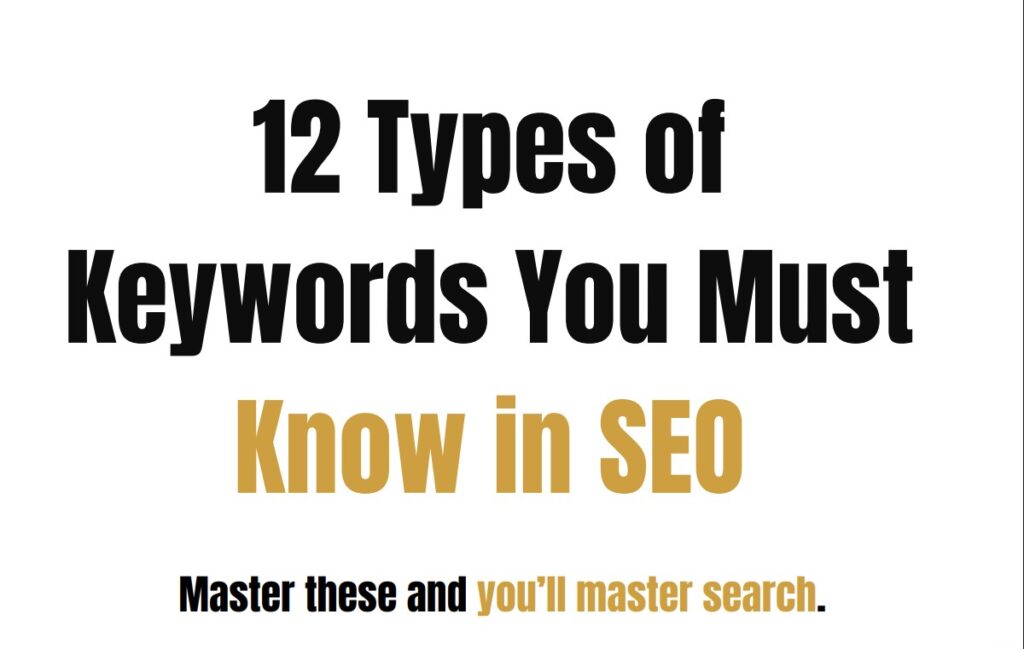
Search Engine Optimization (SEO) continues to evolve, and 2025 is shaping up to be a year of precision, intent-focused strategies, and AI-powered search experiences. One of the most foundational elements of SEO is keywords—but not all keywords are created equal.
To compete in 2025’s search landscape, you need to understand and strategically use various types of keywords. Below are the 12 essential keyword types every digital marketer, content creator, and business should master.
1. Short-Tail Keywords
These are broad search terms with one or two words, like “shoes” or “marketing.”
-
Pros: High search volume
-
Cons: Extremely competitive and low conversion rates
-
Use for: Category pages, brand awareness content
2. Long-Tail Keywords
More specific and often more targeted phrases, like “best running shoes for flat feet.”
-
Pros: Lower competition, higher conversion
-
Cons: Lower search volume
-
Use for: Blog posts, product pages, niche targeting
3. LSI (Latent Semantic Indexing) Keywords
These are contextually related terms that help Google understand topic relevance, such as “marathon training” in an article about running shoes.
-
Use for: Content depth, SEO optimization, semantic relevance
4. Branded Keywords
Keywords that include a brand name, like “Nike running shoes.”
-
Use for: Brand monitoring, PPC campaigns, protecting brand equity
5. Non-Branded Keywords
Generic product or service terms that don’t reference a brand, like “wireless headphones.”
-
Use for: Organic traffic growth and market expansion
6. Transactional Keywords
Used by users who are ready to buy or take action. Examples: “buy DSLR camera,” “free trial SEO tools.”
-
Use for: Landing pages, product pages, PPC ads
7. Informational Keywords
Used by users seeking knowledge, like “how to start a blog” or “what is AI in marketing.”
-
Use for: Blog posts, guides, educational content
8. Navigational Keywords
These are queries where users search for a specific website or app, like “Facebook login” or “Ahrefs blog.”
-
Use for: Brand positioning, ensuring your site ranks for your own terms
9. Local Keywords
Location-based searches such as “best pizza in Dhaka” or “SEO expert near me.”
-
Use for: Local SEO, Google Business Profile, service-based businesses
10. Voice Search Keywords
Spoken queries tend to be longer and more conversational, like “What’s the best laptop for students under $500?”
-
Use for: Voice SEO, FAQs, featured snippets, conversational content
11. Evergreen Keywords
Timeless search terms that consistently get traffic year after year, such as “how to lose weight naturally.”
-
Use for: Sustainable traffic, pillar content
12. Seasonal Keywords
Keywords with spikes in specific times, like “Black Friday deals” or “summer fashion trends 2025.”
-
Use for: Campaign planning, promotional calendars, ecommerce content
Final Thoughts:
keyword strategy is not about stuffing pages with random terms—it’s about intent, experience, and relevance. With AI-enhanced search engines and Google’s evolving algorithm (like the Search Generative Experience), the emphasis is on understanding what the user wants and delivering structured, high-quality content that aligns with the query.

